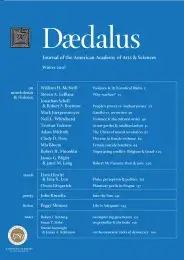Violence & the cultural order
Almost all theoretical and research approaches to violence begin with the assumption that, at its core, violence represents the breakdown of meaning, the advent of the irrational, and the commission of physical harm. Certainly the violence of language, representation, and the structures of everyday life are acknowledged as relevant examples of harm, but these are peripheral phenomena and dependent on the existence of bodily damage and vicious attack as a substrate to these more ethereal examples of violence. A similar ambiguity exists with regard to the way in which natural processes or zoological behaviors exhibit damage of a fleshy kind, but here the supposed reign of instinct and survival invites not only repugnance but also an absence of ethical evaluation.
This informal cartography of the idea of violence in modern Western thinking indicates that orthodox solutions or responses to the problem of violence can only envisage its suppression, as a behavior inappropriate or misjudged to its ends. But what if violence is considered ennobling, redeeming, and necessary to the continuance of life itself? In other words, the legitimacy of violent acts is part of how they are constituted in the minds of observers, victims, and the perpetrators of such acts; and matters of legitimacy are not at all separate from the way in which given acts and behaviors are themselves considered violent in the first place.
Consonant with the recognition that violence is not a natural fact but a moral one, current anthropological thinking has moved steadily away from the notion that it is a given category of human behavior, easily identified through its physical consequences and understood as emerging from the inadequacies of individual moral or social political systems of restraint, or from underlying genetic proclivities. In the light of not only encountering violence more frequently as part of ethnographic fieldwork, but also through more properly understanding the historical importance of colonialism and neocolonialism in establishing certain codes of violent practice, anthropology has now moved toward ideas that stress the centrality of bodily and emotive experiences of violence to the normal functioning of any given cultural order, including that of the West. The problem now is not how to end violence but to understand why it occurs in the ways it does. This involves recognition that violence is as much a part of meaningful and constructive human living as it is an imagination of the absence and destruction of all cultural and social order.
This essay is intended to outline the role violence can play as meaningful cultural expression, whatever its apparent senselessness and destructive potential. This exercise entails a questioning of assumptions as to the self-evident nature of ‘violence.’ It also involves asking how issues of legitimacy critically influence understandings of violent acts, and how such acts themselves are often complex social performances expressive of key cultural values. It also implies a critique of analyses that suggest historically transcendent biological and evolutionary homologies in human violence, as well as of Hobbesian analogies drawn between a ‘primitive,’ savage past and contemporary ‘tribalism’ and ‘terrorism.’ . . .
To read the full essay, access the PDF of the volume.
